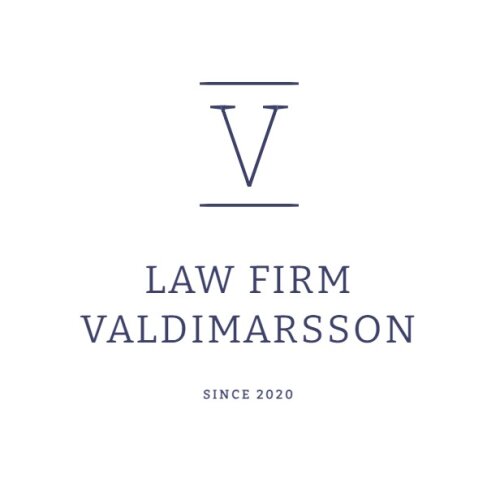Best Faith-Based Law Lawyers in Reykjavik
Share your needs with us, get contacted by law firms.
Free. Takes 2 min.
List of the best lawyers in Reykjavik, Iceland
About Faith-Based Law in Reykjavik, Iceland
Faith-Based Law in Reykjavik, Iceland, refers to legal matters that involve religious practices, beliefs, and institutions. This area of law seeks to balance the religious rights of individuals and organizations with secular legal principles. Iceland, being predominantly Lutheran, also respects a wide range of other faiths. Faith-Based Law may cover various aspects such as religious freedom, church governance, and rights to establish religious institutions, and is governed by both national laws and international agreements respecting religious freedoms.
Why You May Need a Lawyer
Individuals and organizations might seek legal assistance in Faith-Based Law for several reasons. Common situations include disputes involving religious institutions, questions about religious discrimination, issues related to religious education, and conflicts between religious and secular laws. Lawyers specialized in this field can help ensure that religious practices are protected while complying with Icelandic legal standards. In cases where religious rights intersect with other legal areas, such as family or employment law, professional legal guidance becomes crucial.
Local Laws Overview
Reykjavik, as part of Iceland, adheres to a legal framework that supports religious freedom. Iceland's Constitution guarantees the right to practice religion freely, and the country is a signatory to international treaties that protect religious rights. The Evangelical Lutheran Church is recognized as the national church, but other religious communities have the right to form and register as legal entities. Icelandic law also addresses issues such as religious discrimination, religious symbols in public spaces, and faith-related education, thereby making it essential for practitioners to understand both civil and religious law.
Frequently Asked Questions
1. What rights do religious organizations have in Iceland?
Religious organizations have the right to establish themselves as legal entities, conduct religious ceremonies, and own property. They are protected under both the Icelandic Constitution and international religious freedom agreements.
2. How does one register a religious organization in Reykjavik?
To register a religious organization, one must apply with the Ministry of Justice, providing necessary documentation such as the constitution, leadership structure, and statements of faith.
3. Are there special legal protections for religious schools in Reykjavik?
Yes, religious schools can operate but must adhere to national education standards. They have some flexibility to incorporate religious teachings into their curriculum.
4. Can an employer in Reykjavik prohibit religious attire at work?
Employers must balance workplace requirements with religious rights. Prohibiting religious attire might be considered discriminatory unless it can be justified on specific grounds.
5. What happens if a religious belief conflicts with Icelandic law?
If a religious belief conflicts with national law, legal advice should be sought to navigate potential resolutions or accommodations respecting both religious and legal obligations.
6. Can religious groups receive funding from the Icelandic government?
Certain registered religious groups may receive state support, distributed based on the number of registered members, to help maintain their institutions.
7. How is religious discrimination addressed in Iceland?
Religious discrimination is illegal in Iceland. Victims can seek redress through the courts or relevant governmental bodies such as the Equality and Anti-Discrimination Office.
8. How does Iceland handle religious symbols in public spaces?
The display of religious symbols in public spaces is generally permitted but must not infringe on the rights of others or interfere with public order.
9. What are the rights of parents regarding religious upbringing in Iceland?
Parents in Iceland have the right to raise their children according to their religious beliefs, but this is balanced with the state’s obligation to protect children's rights.
10. Is there any law protecting religious holidays in the workplace?
Employees may request leave for religious holidays, and employers are encouraged to accommodate these requests where possible, considering business needs.
Additional Resources
The following resources can assist individuals seeking more information or help with Faith-Based Law in Reykjavik:
- The Ministry of Justice
- The Icelandic Human Rights Centre
- The Office for Equality and Anti-Discrimination
- The National Church of Iceland
Next Steps
If you find yourself in need of legal assistance in Faith-Based Law, consider taking the following steps:
- Consult with a lawyer specialized in Faith-Based Law to understand your rights and obligations.
- Contact the relevant governmental bodies or organizations for guidance and support.
- Gather all relevant documents and information related to your case to provide to your legal advisor.
- Consider mediation services if appropriate, which may help resolve disputes without court involvement.
Taking these steps will help ensure your rights are protected while navigating the complexities of Faith-Based Law in Reykjavik, Iceland.
Lawzana helps you find the best lawyers and law firms in Reykjavik through a curated and pre-screened list of qualified legal professionals. Our platform offers rankings and detailed profiles of attorneys and law firms, allowing you to compare based on practice areas, including Faith-Based Law, experience, and client feedback.
Each profile includes a description of the firm's areas of practice, client reviews, team members and partners, year of establishment, spoken languages, office locations, contact information, social media presence, and any published articles or resources. Most firms on our platform speak English and are experienced in both local and international legal matters.
Get a quote from top-rated law firms in Reykjavik, Iceland — quickly, securely, and without unnecessary hassle.
Disclaimer:
The information provided on this page is for general informational purposes only and does not constitute legal advice. While we strive to ensure the accuracy and relevance of the content, legal information may change over time, and interpretations of the law can vary. You should always consult with a qualified legal professional for advice specific to your situation.
We disclaim all liability for actions taken or not taken based on the content of this page. If you believe any information is incorrect or outdated, please contact us, and we will review and update it where appropriate.











